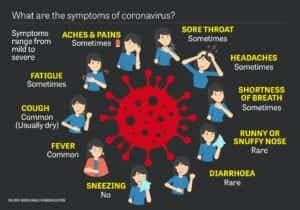The USA is extending its coronavirus travel ban to the UK and Ireland - here’s what you need to know


The USA is extending its European travel ban to include the UK and Ireland, in an effort to help contain the spread of coronavirus.
The ban is to be imposed from midnight Eastern Standard Time (EST) on Monday 16 March 2020, Vice President Mike Pence has announced.
Advertisement
Hide AdAdvertisement
Hide AdWhere does the US travel ban cover?


President Donald Trump imposed a travel ban on 26 European countries as of Saturday 14 March, all of which are members of the Schengen free movement zone.
The ban now extends to the UK and Ireland, along with the following countries:
Austria
Belgium
Czech Republic
Denmark
Estonia
Finland
France
Germany
Greece
Hungary
Iceland
Italy
Latvia
Liechtenstein
Lithuania
Luxembourg
Malta
Netherlands
Norway
Poland
Portugal
Slovakia
Slovenia
Spain
Sweden
Switzerland
Mr Pence also announced that free coronavirus testing would be provided for every American, as the US confirmed there have been more than 3,485 cases of coronavirus across the country and over 60 deaths.
President Trump has been tested for the virus, with the White House confirming the result was negative.
Advertisement
Hide AdAdvertisement
Hide AdMore than 132,500 people have now been diagnosed with Covid-19 in 123 countries, according to the World Health Organization (WHO). It says Europe is now the epicentre for the virus, which originated in China.
The UK and Ireland were previously exempt from the travel ban, but President Trump made the decision to extend it after a recent increase in cases.
American citizens and legal US residents who are in the UK or Ireland will be permitted to return to the country, but will be “funnelled through specific airports and processed,” Mr Pence said.
(Photo: WHO)
Coronavirus: the facts
What is coronavirus?
COVID-19 is a respiratory illness that can affect lungs and airways. It is caused by a virus called coronavirus.
Advertisement
Hide AdAdvertisement
Hide AdWhat caused coronavirus?
The outbreak started in Wuhan in China in December 2019 and it is thought that the virus, like others of its kind, has come from animals.
How is it spread?
As this is such a new illness, experts still aren’t sure how it is spread. But similar viruses are spread in cough droplets. Therefore covering your nose and mouth when sneezing and coughing, and disposing of used tissues straight away is advised. Viruses like coronavirus cannot live outside the body for very long.
What are the symptoms?
The NHS states that the symptoms are: a dry cough, high temperature and shortness of breath - but these symptoms do not necessarily mean you have the illness. Look out for flu-like symptoms, such as aches and pains, nasal congestion, runny nose and a sore throat. It’s important to remember that some people may become infected but won’t develop any symptoms or feel unwell.
What precautions can be taken?
Washing your hands with soap and water thoroughly. The NHS also advises to cover your mouth and nose with a tissue or your sleeve (not your hands) when you cough or sneeze; put used tissues in the bin immediately and try to avoid close contact with people who are unwell. Also avoiding touching eyes, nose and mouth unless your hands are clean.
Advertisement
Hide AdAdvertisement
Hide AdShould I avoid public places?
Most people who feel well can continue to go to work, school and public places and should only stay at home and self isolate if advised by a medical professional or the coronavirus service.
What should I do if I feel unwell?
Don’t go to your GP but instead call NHS 111 or look online at the coronavirus service that can tell you if you need medical help and what to do next.
When to call NHS 111
NHS 111 should be used if you feel unwell with coronavirus symptoms, have been in a country with a high risk of coronavirus in the last 14 days or if you have been in close contact with someone with the virus.
Sources: World Health Organisation and NHS